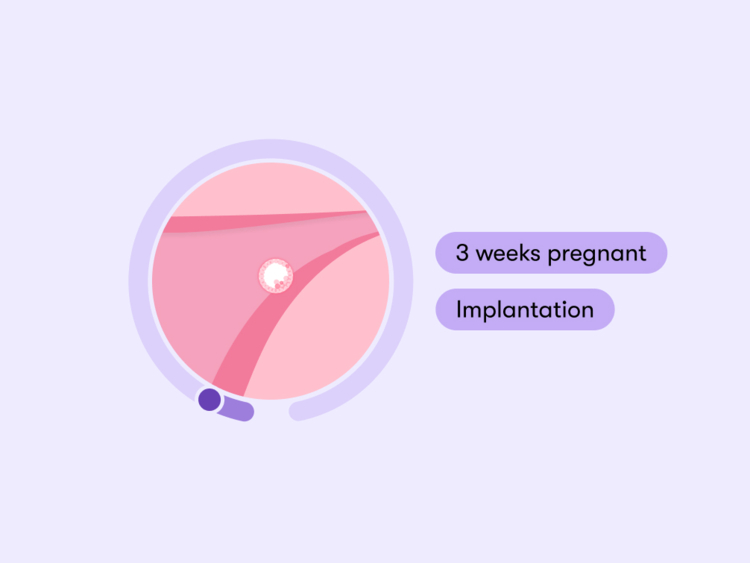Whether you’re trying for a baby or not, it’s natural to be full of questions during the early weeks of pregnancy. At 3 weeks pregnant, you’re probably wondering whether you can get pregnancy symptoms before a missed period — or whether it’s worth taking a pregnancy test yet.
The 3-week mark is an exciting and important time in your pregnancy because this is when fertilization and implantation take place. Keep reading to learn more about what’s going on in your body during this special week from a Flo expert, as well as how to take care of yourself and your potential future baby.
Your baby at 3 weeks pregnant
Cells dividing
Before we get started, let’s take a quick math lesson. The weeks of your pregnancy are counted from the first day of your last period (rather than the day of conception), which can be confusing. To recap your journey so far, 1 week pregnant marks the beginning of your new menstrual cycle. Then at 2 weeks pregnant, your body is preparing for ovulation and the release of an egg. At 3 weeks pregnant, a champion sperm will fertilize your egg, before this fertilized egg implants itself into your uterus. Don’t worry if counting the weeks in this way feels strange at first, as it will start to feel more natural as the weeks go on.
So, while there isn’t a baby there just yet, 3 weeks pregnant is when fertilization happens. Your egg gets fertilized by a sperm within 24 hours of ovulation. This single cell then divides into multiple cells over the next few days.
Implantation
Next comes the big moment: Between days 20 and 24 of your cycle, or 6–10 days after ovulation, your fertilized egg will implant itself into your uterus, and you will officially become pregnant. Once the fertilized egg (which at this stage is called a blastocyst) has fully embedded into the uterus, it will start receiving nourishment from your body.



